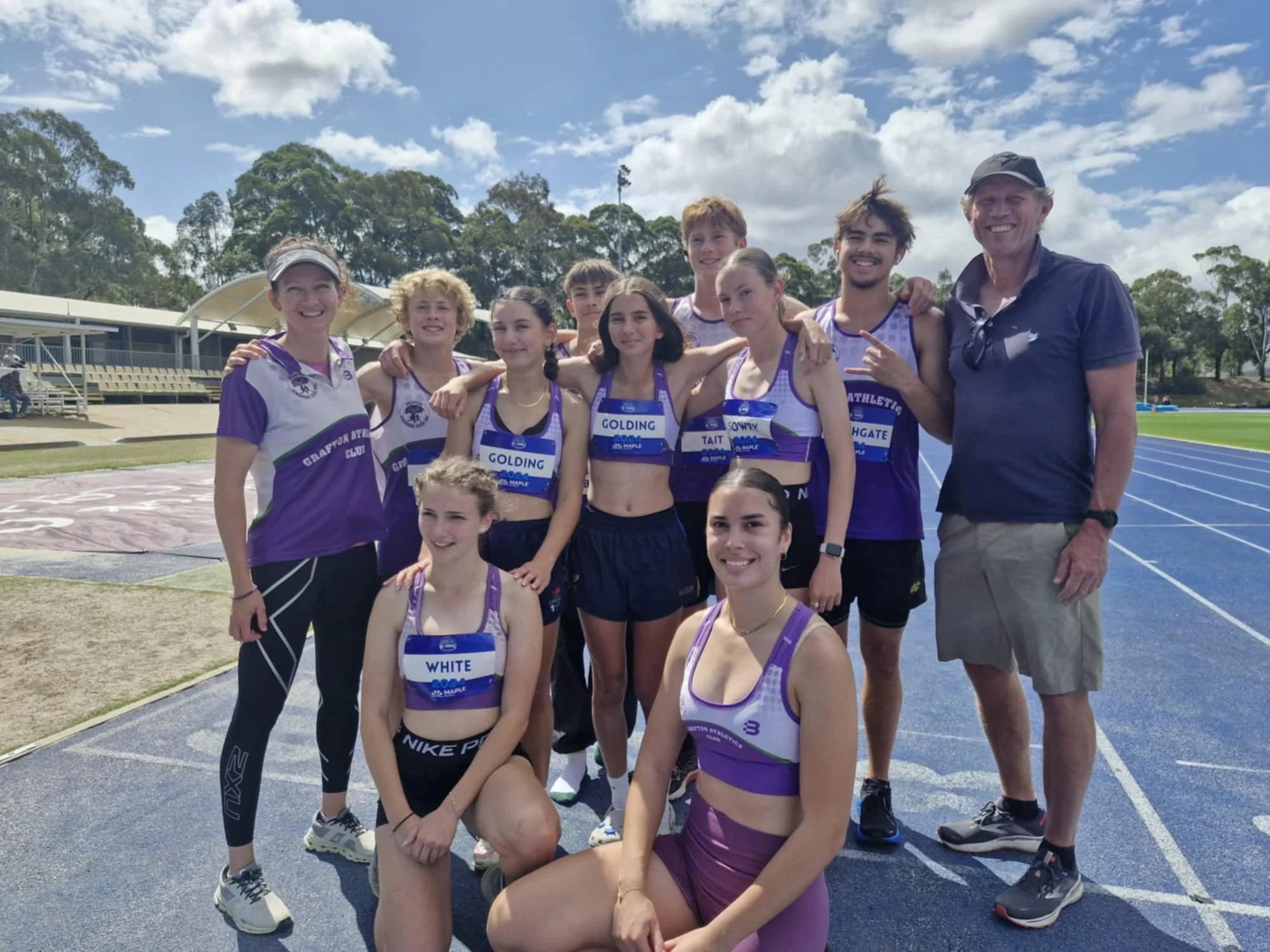Coaches Corner
Lesley White
Lesley White is a regional coach and masters athlete who turns versatility and community spirit into athlete growth on and off the track.
How did you get into coaching athletics?
I first stepped into coaching as a way to better understand my own journey and progression as a masters athlete. Already working as a fitness professional, coaching felt like a natural extension, an opportunity to learn, grow, and share that growth with others.
What do you enjoy most about coaching?
Coaching brings me genuine joy. Seeing athletes grow in confidence and self-belief is incredibly rewarding. For me, coaching is about developing people first, not just athletes, it’s about building resilience, trust, and personal strength that extends beyond the track.
What did you take away from the 2025 Women in Coaching Conference that you’re already putting into practice?
The Women in Coaching Conference was an incredible experience, with so many valuable insights. The biggest takeaways I’ve already implemented are the networking opportunities and business development strategies. I’m also revisiting the presentations to reflect further and weave more of those learnings into my everyday coaching practice.
What’s a lesson you’ve learnt from an athlete that’s shaped the way you now coach?
One of the greatest lessons I’ve learnt is the importance of self-kindness. Many athletes, especially those starting out, put immense pressure on themselves to improve every time. I’ve seen how performance is influenced by factors like weather, stress, and wellbeing. Learning patience and practicing self-compassion helps athletes, and coaches, sustain success in the long run.
What role do mentors or peer coaches play in your own development?
I wouldn’t be the coach I am today without my mentors. Their stories, lived experiences, and encouragement to think outside the box have been invaluable. They’ve shared tried-and-tested systems while also challenging me to grow, shaping not only my coaching but my outlook on continuous improvement.
How do you balance the demands of coaching with your own wellbeing and longevity in the sport?
Balancing coaching with personal wellbeing is always a challenge. As a masters athlete myself, I protect my own training time as a space for mental clarity and focus. That time keeps me grounded and allows me to better understand the athlete experience. It strengthens my ability to connect, empathise, and support them on their own journey.
What’s the best way for people to reach out or follow your work?
While I’ve been slow to embrace social media, I do maintain a website that showcases the different facets of my work. Recently, I’ve made a conscious commitment to celebrate my athletes more actively on social media, sharing their stories and successes as a way to connect with the wider community.
What unique strengths do regional and rural coaches bring to the athletics community?
In smaller communities, athletes often require broader support, and rural coaches naturally step into many roles. That flexibility, wearing multiple hats and adapting to diverse needs, gives regional coaches a unique versatility that enriches the athletics community.
What role does community support play in sustaining athletics programs in regional areas?
Community involvement is absolutely essential. Much of the opportunity available to regional athletes exists because of the commitment of local coaches, volunteers, and supporters. Without that collective effort, many programs simply wouldn’t be possible.
How do you approach professional development when workshops and conferences are usually city-based?
It can be challenging, but I make the most of the many online workshops now available, fitting them in around my schedule. I also value in-person learning and networking, as it builds confidence and connections. I aim to attend at least one in-person event each year to stay inspired and engaged.



